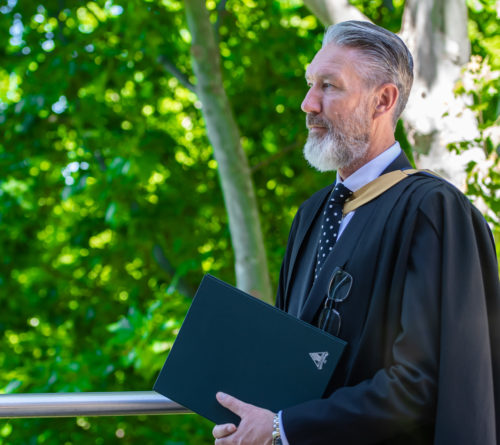From the Deputy Head Master – Summer Hill
Love your neighbour as yourself.
Mark 12:31a
Over the course of this term the School will be emphasising the traditions and values of the School in a very deliberate way. We will talk about the history of the Chapel and the fact that it is a memorial and why that matters, the importance of creating a safe environment and how the School views and responds to allegations of harassment and discrimination, and in recent days we have talked about courtesy and the importance of respect.
Courtesy is another of the traditions which we continue to uphold, even though it may be slightly old fashioned and just a little bit quaint, and it was to the Record Book that I turned when I spoke with your sons today. Its pages lay out some specific principles and rules that it is good to remind ourselves of every now and again. However, the most important sentence is the one that refers to the reason we are courteous to one another. It is because we want to create a respectful environment that acknowledges the dignity of being human.
Respect is one of those things that everyone wants, but it is a paradox insofar as the more respect you give others, the more it is given back to you. The table of rights and responsibilities in the Record Book makes it clear that every person in the School community is entitled to be treated with respect. However, it is also clear that with that right comes the responsibility to treat others in the same way. That’s because we know that the giving and gaining of respect are inextricably linked. You do not gain respect by putting others down, or by making them scared of you, or by putting yourself first. You gain respect from your friends, teachers and your parents by being respectful.
In practical terms, it means standing back for adults, giving up your seat on the train, opening the door for others, making eye contact, listening to others, speaking politely and so on.
Respectful, courteous relationships, expressed through the way we interact with one another, have always been the hallmark of Trinity Grammar School.
Long may it be so.
It is also important to have a shared understanding that Trinity Grammar School is committed to providing all members of the School community with a safe learning and working environment, free from harassment and discrimination. The School does not accept, and will not tolerate discrimination, harassment or bullying on the basis of race, religion, age, gender, sexual orientation, skin colour, intellectual capacity or disability. Page 14 of the Record Book provides both an explanation of the sorts of behaviours the School will act on, together with some guidelines for your son on page 16 about how to respond in the event that he feels he is being harassed. It is important to acknowledge that young people make mistakes, as do adults, and that they, like us, are entitled to experience the logical consequences of their actions. If your son is the victim of anti-social behaviour he will be supported. If your son engages in anti-social behaviour, either face to face or online, the School is likely to respond with a sanction. Whilst it may be felt as a punitive response, the purpose is always educational, proportional and logical.
The explanation for the high value we place on mutual respect has its genesis in the School’s conviction of the value of the individual. This thread runs through the introductory pages in the Record Book and continues on page 20 with an articulation of your sons’ Rights and Responsibilities. In over thirty years of School mastering, I have formed the view that young people have no problem at all with understanding their rights, but that as parents and teachers our work tends to focus on helping them come to understand the reciprocal relationship with their responsibilities. The catalogue of Rights and Responsibilities is grounded in the School’s fundamental belief, imago Dei, that we are created in the image of God and, as a result, we are to seek to treat one another with understanding and respect. Over the course of this term, this notion of mutual respect will be unpacked with your sons in the Life Skills Programme, Assemblies and House Meetings. It is our hope that the ubiquity of our messaging to your sons leads to it becoming a topic of dinner table conversation.
Bradley Barr | Deputy Head Master – Summer Hill
















